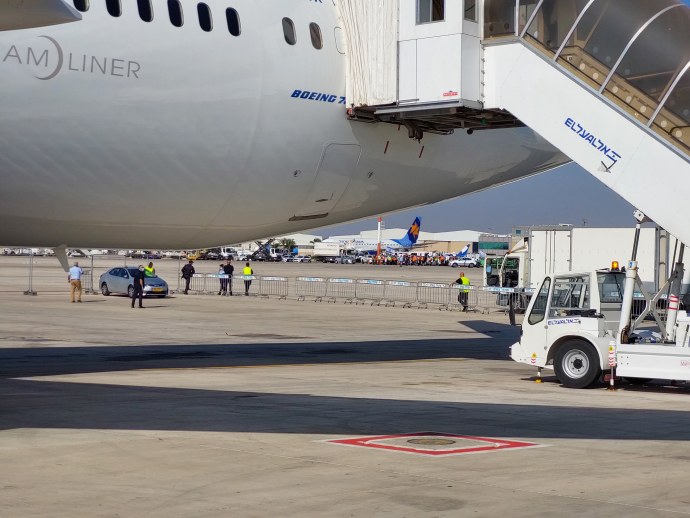Former senior executive of EL AL's security division Rami Yogev was sentenced to 12 years in prison on Tuesday for his part in smuggling over 50 kilograms of cocaine in what Israel Police are calling "one of the most serious drug cases Israel has known."
Yogev was involved in a scheme to import drugs into the country using the company's planes. As a result of the scheme, at least 54 kg. of cocaine were smuggled from South Africa into Israel through planes and border crossings.
He was convicted in a plea deal in an amended indictment in which he admitted to being involved in smuggling, but did not know exactly what was being smuggled, saying that he was unaware that the suitcases contained drugs, opting to overlook the possibility.
According to the court, he abused his position and allowed the transfer of the suitcases without proper inspection in exchange for $10,000 per suitcase.
Yogev was convicted of three counts of conspiracy to commit a crime and three counts of importing a drug weighing 18 kg each time.

Judge Moti Levy ruled that "Yogev took advantage of his position at El Al to bring the luggage to Israel." According to him, this is "one of the most serious drug cases discussed in court. The seriousness is that the drugs were not seized." In addition to the prison sentence, the court ordered the forfeiture of NIS 218,000 seized in Yogev's estate.
"Yogev took advantage of his position at El Al to bring the luggage to Israel."
Judge Moti Levy
Original charges
The original indictment, filed by attorneys Russo and Ronit Hasson in January 2019, alleged that a number of people involved managed to import cocaine into Israel on ten occasions over several years.
A total of 150 kg. of the drug was imported into Israel. Hanania Knafo, the main suspect, a prisoner involved in the case, was sentenced to 10 years in prison.
The original indictment states that the state witness in the case worked in the security division of EL AL until he was replaced by Yogev in 2010.
From then until his arrest, Yogev served as head of the division's development and resources department. As part of his work and thanks to his security classification, Yogev had access to various areas at Ben-Gurion Airport, including aircraft.
According to the defense, the defendant's ignorance of the contents of the suitcases should be taken into consideration.
The judge further noted that although the defendant was told by the state witness that it was an import of gold, he noted that his conviction was based on overlooking the matter, because he should have considered the possibility that he was importing a drug.
Even so, the defense claimed that it would not be right to ignore that the defendant, unlike others involved in the matter, did not know that it was drugs and believed that it was gold.
